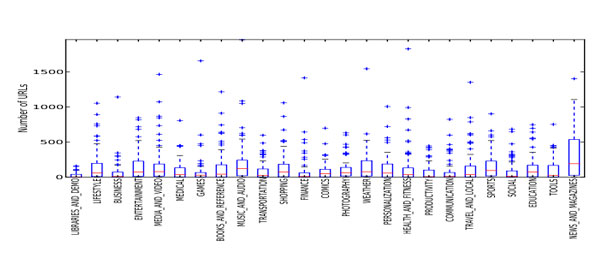Best of 2015: The Truth About Smartphone Apps That Secretly Connect to User Tracking and Ad Sites
There are essentially two starkly different environments in which to download apps. The first is Apple’s app store, which carefully vets apps before allowing only those deemed fit to appear. The second is the Google Play store, which is more open because Google exercises a lighter touch in vetting apps, only excluding those that are obviously malicious.

But because Google Play is more open, the apps it offers span a much wider quality range. Many connect to ad-related sites and tracking sites while some connect to much more dubious sites that are associated with malware.
But here’s the problem—this activity often takes place without the owner being aware of what is going on. That’s something that most smartphone users would be appalled to discover—if only they were able to.
Today, Luigi Vigneri and pals from Eurecom in France have a solution. These guys have come up with an automated way to check the apps in Google Play and monitor the sites they connect to. And their results reveal the extraordinary scale of secret connections that many apps make without their owners being any the wiser.
Keep Reading
Most Popular
Large language models can do jaw-dropping things. But nobody knows exactly why.
And that's a problem. Figuring it out is one of the biggest scientific puzzles of our time and a crucial step towards controlling more powerful future models.
How scientists traced a mysterious covid case back to six toilets
When wastewater surveillance turns into a hunt for a single infected individual, the ethics get tricky.
The problem with plug-in hybrids? Their drivers.
Plug-in hybrids are often sold as a transition to EVs, but new data from Europe shows we’re still underestimating the emissions they produce.
Google DeepMind’s new generative model makes Super Mario–like games from scratch
Genie learns how to control games by watching hours and hours of video. It could help train next-gen robots too.
Stay connected
Get the latest updates from
MIT Technology Review
Discover special offers, top stories, upcoming events, and more.